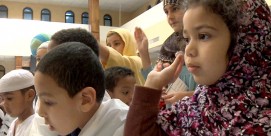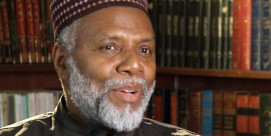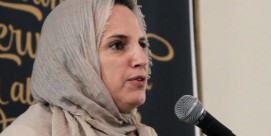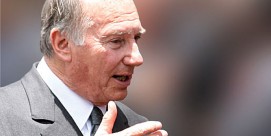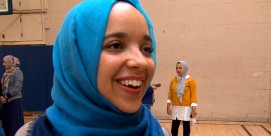Islam and Democracy

Can Islam make its peace with modernity and democracy? We highlight from the Religion & Ethics NewsWeekly archive some comments over the years from scholars and experts on the compatibility of democratic values and Islam:
Seyyed Hossein Nasr, professor of Islamic studies, George Washington University:
The Muslim people do not like freedom and democracy any less than anybody else. It is in the nature of human beings to like freedom. The problem is sometimes these terms are defined exclusively upon the basis of the Western experience, which is culturally bound and has taken many historical transformations to become what it is. The question isn’t whether Islam can live with modernism. There’s a much more profound battle afoot. It isn’t that modernism has won the day and now everybody has to conform to it. Modernism itself is floundering. Islam as a value system, not only as a religion, has to be thought about as a contending way of looking at the universe. Islam can live with modernism on a practical level. But there has to be an intellectual exchange. The idea that modernism is reality and everything else has to conform to it—that has to be challenged.
Karen Armstrong, author of Islam: A Short History:
Muslims have to modernize their societies, and they’ve only just begun. It’s a long, painful, difficult process. They are having to do it far too quickly, and they are experiencing many of the same traumas we did in Europe: wars of religion, revolutions, reigns of terror, exploitation of women and children, despotisms, basic alienation and anomie as conditions change and nothing new takes their place. We are watching people in some parts of the Islamic world going through a process that we went through ourselves but have forgotten. We think that anybody can just create a democracy in no time at all, forgetting that it took us hundreds of years to develop our secular and democratic institutions.
Omid Safi, professor of religious studies, University of North Carolina:
The Qur’an is clearly not a political constitution as we understand the term today. Nonetheless, it envisions a society devoted to justice for all and to aiding the oppressed in light of a collective responsibility before God. Historically, Muslims have relied on monarchies (whether in secular sultanates or religious caliphates) that have been open to abuses of power. Today Muslims are seeking newer models of government that offer the greatest possibility of self-determination and living a life free from injustice. The question for any society trying to reconcile religion and liberal democracy is whether it will ensure for women and religious minorities the same civil liberties it would mandate for its own male members. This is not an abstract, theoretical question for Muslims. It is timely and urgent, and it will need to be answered in the affirmative.
Roy Mottahedeh, professor of Islamic history, Harvard University:
What is the place of Islam in the travails the world is going through? Sometimes I’m inclined to agree with a sentence Mary McCarthy wrote in her Memories of a Catholic Girlhood—that religion makes good people better and bad people worse. Perhaps religion has added intensity to many of the struggles that are going on, but I don’t believe the actual struggles are primarily caused by religion. They have all almost naturally attained a religious flavor because the majority of the world’s people are now engaging in some way in politics, and their identity is more religious than nationalistic. It is popular to say that the Muslim world has not had a reformation, which is not quite correct. Some forms of Islam are very Protestant in character. Some are more Catholic in character. But Islam has not seen the elements of Enlightenment that passed from the West into the Muslim world fully absorbed into religious learning. That’s a revolution that is taking place now. It’s a gradual revolution, but I have no doubt that, 25 years from now, it will be a revolution that is largely accomplished.
Fawaz Gerges, professor of Middle East politics and international relations, London School of Economics:
The genius of the West lies in sustaining an open society with constitutional checks and balances that protect individual rights, freedoms, and obligations. But the Enlightenment was not a coincidence. It occurred as a result of trade and cross-fertilization of cultures, particularly with the world of Islam. History shows that Islam’s decentralized institutions carry within them the seeds of democracy. The challenge is to rejuvenate Islam’s previous forms of local autonomy and decentralized authority—to limit the reach of the tyrannical state, empower the individual, and free the creative spirit. This ambitious project requires cross-cultural fertilization and receptiveness to universal currents.

